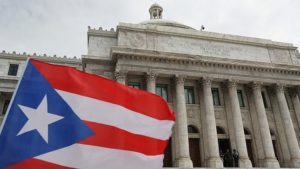
Puerto Rico is closer to resolving its five-year bankruptcy battle after a federal judge approved a restructuring place that would reduce a substantial amount of the $70 billion debt.
This week, the restructuring plan approved cutting part of the debt down to about $7 billion.
Puerto Rico will commit at least 10% of its general fund budget to repaying its debt, using this year’s budget as a baseline.
The island’s $70 billion public debt was issued by more than a dozen local government entities, public corporations as well as the public employee retirement system.
In 2015, the Puerto Rican government proclaimed its debt “unpayable” following decades of corruption, mismanagement, and excessive borrowing
This proclamation caused Congress to create the 2016 Promesa law during the Obama administration. This law put in place the federal financial oversight board and created a mechanism for the territory to restructure its debt in federal court.
Governor Pedro Pierluisi stated, “the cost of the bankruptcy has been paid with public funds belonging to the government of Puerto Rico, paid by taxpayers in Puerto Rico.”
The oversight board estimates that this will continue to be the case; that 7 cents of every taxpayer dollar in Puerto Rico will go toward repaying the debt service following the latest restructuring, the federal financial oversight board stated.
In a statement this week, Pierluisi states that while the agreement is “not perfect, it is very good for Puerto Rico” mostly because it excludes proposed cuts to pension, the public university and municipalities.
The plan also “provides guardrails for future borrowings” to prevent fiscal crises, Natalie Jaresko Executive Director of the financial oversight board said. These include limiting long-term borrowing for capital improvements only and beginning to write off all newly issued debt within two to five years of issuance, among other policies.
Puerto Rico is expecting some economic growth this year as federal funding for reconstruction following 2017’s Hurricane Maria, 2020’s earthquakes and the COVID-19 pandemic makes its way to the island, stated Sergio Marxuach, a policy director at a nonpartisan think tank Center for New Economy.

Recent Comments